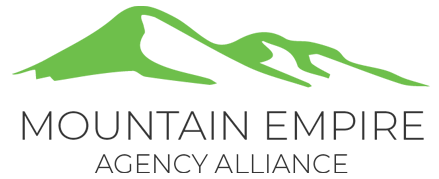Jimmy Cooper, Marketing Coordinator
Introduction
The insurance industry is one market with tremendous growth each year and one you can expect to continue to grow despite the pandemic causing a drop in new business growth in 2020 and 2021. The insurance industry remained strong. How strong? Just last year alone, we saw 24.37% growth in the industry. Ranking the insurance industry fourth in new business applications filed in the United States.
This says a lot about the insurance industry as a whole. When opening a new business, one of the first things you want to consider is how secure the market you are entering is. According to ibisworld.com, there are 415,466 insurance brokers and agencies in the United States, and it is estimated that 36,000 are independent agencies. Two types of agencies, captive and independent, will come up a lot when researching careers in the insurance industry. Each has advantages and disadvantages.
Captive Agents vs. Independent Agents
A captive agent is an insurance agent who only works for one insurance company. They can be full-time or an independent contractor. The captive agent is mostly limited to only selling policies of the company they are employed by. They earn a small commission for sales and some may earn additional compensation such as benefits or small salaries.
Independent agents have the ability to sell policies by different insurance carriers, giving their customers more options. They are paid by commission for policies that they have sold but at a much higher commission rate than captives pay. Much like independent financial advisors, independent agents consider the client’s coverage needs and provide them with a broad range of options for policies and bundles at a reasonable price.
Captive Agent Advantages
The most significant advantage to being a captive agent is that typically the insurance companies spend vast amounts of marketing dollars strengthening a brand name that you represent. The result is a steady flow of potential clients at your door. In addition, depending on the insurance company, benefits and salary may be provided. This could provide a small safety net; if you do not sell many policies, you still may have some income security. Most captive agents also receive a commission on policies sold though it is far less than what independent agents earn.
Captive Agent Disadvantages
Disadvantages include limited product offerings and prices, sales quotas, paying fees to the company for things like marketing, and having restrictions on how you can run your agency. Having limited products and prices presents a large disadvantage because if the company you work for is not able to offer a good product or a competitive rate on a client’s risk, you have no other options available to you and the client will likely buy their insurance somewhere else. Another disadvantage to keep in mind are sales goals, or “quotas.” As a captive agent, you may be required to maintain certain performance standards or risk having your income reduced, or even having your contract terminated. Finally, all of that marketing support we mentioned earlier? Often times, captives are asked to pay part of it, other times it may be covered so long as certain production goals are maintained. Ultimately, Captive agents often find that these disadvantages end up causing their agency to plateau, or worse, shrink, if the company they represent becomes less competitive in their area, something that is not at all rare.
Independent Agent Advantages
Independent agents have the powerful ability to sell policies from multiple carriers. This is a huge advantage for being able to find the best rate and plan to fully meet the client’s needs. This makes independent agencies far more resilient – if one company becomes uncompetitive in the market, you have others that you represent that you can fall back on. You have total freedom on how you conduct business. You can target market to whoever or whatever businesses you choose and because you are responsible for your own marketing and advertising, you get to choose exactly how and where this is spent. Finally, as an independent agent you can earn exponentially more income as everything from commissions to bonuses are much higher than Captives receive. Independent agents often earn 50% more than captive agents on the same policies.
Independent Agent Disadvantages
If you are starting your own agency, is no salary, so your income completely depends on your success. There isn’t backing from a large well-known insurance company that does marketing/advertising and provides you with prospected clients. A challenge to be sure, but one we can help with!
The MEAA Advantage
The U.S. Bureau of Labor Statistics says an average of 45% of businesses fail within the first five years. MEAA has a start-up success rate of 82%, far surpassing the average. We have a proprietary training and support program geared towards helping people start and grow successful independent insurance agencies. Through this program, we’ve helped numerous captive agents make the switch to the independent side. Whether you have just started out, or are already established and seeking growth opportunities, MEAA can help start, and/or give, your independent agency incredible advantages over being a captive agency. We provide coaching and mentoring, marketing assistance, top-level commissions paid directly to you from day one, quarterly bonuses, direct company appointments with top national, and regional carriers, increased revenue, and more. You always retain 100% ownership of your agency and full autonomy over your business and there are no non-competes if you leave, you keep what you build.
In Conclusion
The insurance industry has proven to be a strong market after surviving the pandemic and flourishing when other businesses closed. If you are looking to start an insurance agency, the benefits of being independent far surpass being a captive agent. You earn more from the same policies, with full control over your business, and no one looking over your shoulder.
Independent Doesn’t Have to Mean Alone. Let us help you achieve your goals!
Contact MEAA at (423) 782-2428, info@meaa4u.com, or sign up at www.meaa4u.com.

